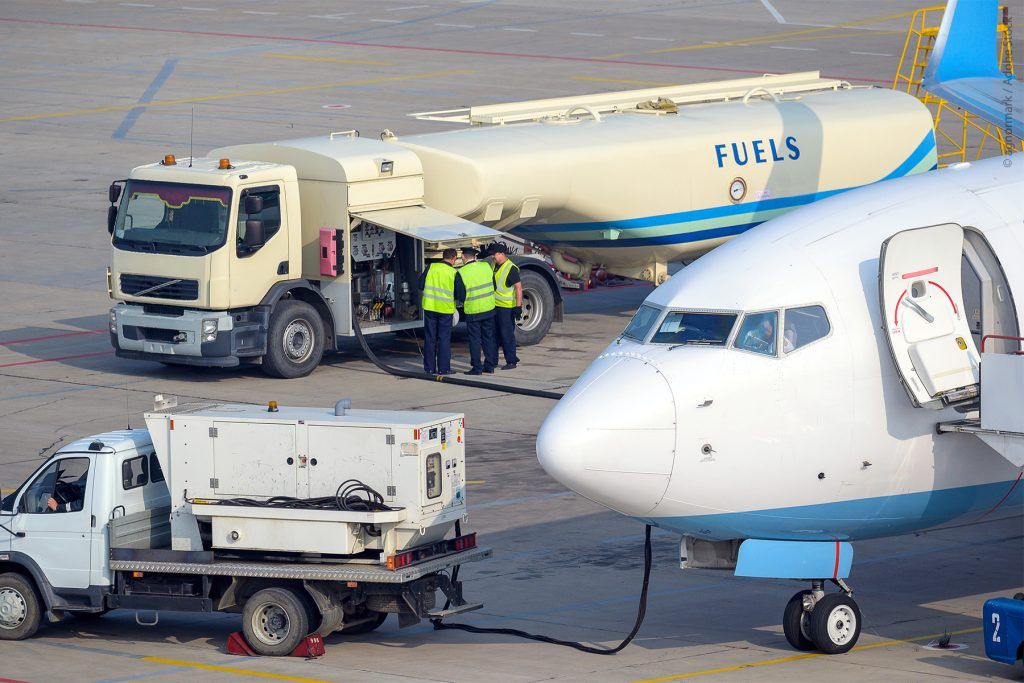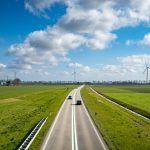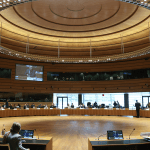Emissions from planes and ships are increasing, while the EU wants to reach carbon neutrality by 2050. Read about EU measures to reduce their emissions
Despite only accounting for about 8 % of the EU’s total emissions, emissions from aviation and shipping are increasing. In an effort to cut the EU’s total emissions 55 % by 2030 and to reach net zero by 2050, the EU has ambitious plans to counteract climate change. The legislative package called Fit for 55 aims to deliver the EU’s Green Deal’s objectives, includes proposals to reduce emissions from both sectors.
Read more on EU targets and measures to cut emissions
Improving emissions trading for aviation
The EU has taken steps to reduce aviation emissions through its Emissions Trading System (ETS). It applies so-called cap and trade rules for the aviation sector where airlines are required to surrender emissions allowances to cover their emissions. However, to avoid putting EU companies at a disadvantage, the Emissions Trading System currently only applies to flights within the European Economic Area – which covers all EU countries as well as Iceland, Lichtenstein and Norway – and most of the allowances are distributed to the airlines for free.
On 8 June 2022, Parliament voted in favour of a revision of the Emissions Trading System for aviation. To align greenhouse gas emissions reductions in the aviation sector with the Paris Agreement, MEPs call for the Emissions Trading System to apply to all flights departing from the European Economic Area, including flights landing outside the area.
Parliament wants to phase out free the allocations for aviation before 2025, two years ahead of the European Commission’s proposal. MEPs want to use 75 % of the revenues generated from the auctioning of allowances for aviation to support innovation and new technologies.
It will now begin negotiations with EU countries on the final shape of the rules.
Finding solutions for flights outside Europe
So far, the Emissions Trading System has been suspended for flights departing or arriving outside the European Economic Area. The purpose is to allow time for the development of a comparable international system and to avoid conflicts with international partners.
However, the EU is working with the International Civil Aviation Organization to implement a global market-based measure, known as Corsia, whereby airlines can offset their emissions by investing in green projects, for example by planting trees.

Taxonomy: MEPs object to Commission’s plan to include gas and nuclear activities |
Reducing emissions from maritime transport
On 16 September 2020, MEPs voted in favour of including maritime transport in the EU’s Emissions Trading System as of 2022 and of setting binding requirements for shipping companies to reduce their CO2 emissions by at least 40 % by 2030.
According to MEPs, the original Commission proposal to revise EU rules on the monitoring of CO2 emissions and fuel consumption from large ships in order to bring it in line with global rules was not ambitious enough given the urgent need to decarbonise all sectors of the economy.
On 27 April 2021, the Parliament reiterated the need for a substantial cut in emissions by the shipping industry and its inclusion in the EU’s Emissions Trading System. It also underlined the importance of assessing the impact on competitiveness, jobs and raised the potential risk of carbon leakage.
Parliament wants the following measures to help the maritime sector become cleaner and more efficient in the transition to a climate-neutral Europe:
- The phasing out of heavy fuel oils with compensation via tax exemptions on alternative fuels
- The decarbonisation, digitalisation and automatisation of European ports
- Regulated access to EU ports for the most polluting ships
- Technical improvements such as vessel speed optimisation, innovation in hydrodynamics new propulsion systems
As part of the Fit for 55 legislative package, the Commission proposed in July 2021 an update of the Emissions Trading System, including an extension to cover maritime transport, as requested by the Parliament. On 17 May 2022, members of the environment committee backed the proposal. In June, the plenary referred the reform of the trading system back to the committee to further work on the legislation. MEPs are expected to discuss the revised proposal during the plenary session on 22-23 June.
Fuente: European Parliament — News







Leave a Reply